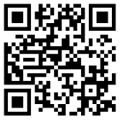2020年1月7日,欧盟食品安全局(EFSA)发布Δ9-四氢大麻酚(Delta‐9‐tetrahydrocannabino,Δ9‐THC)的人体急性暴露评估。
据了解,Δ9-四氢大麻酚是一种天然存在的精神活性化合物,源自大麻植物。部分原文报道如下:
Following the European Commission Recommendation 2016/2115 on the monitoring of the presence of Δ9‐THC in food and the issuing of a new mandate, EFSA assessed the acute human exposure to Δ9‐THC. 'Standard' food categories were used as proxies for consumption of hemp and hemp‐based products. Twelve independent scenarios based on single food categories were considered and acute exposure was assessed for consumption days only for all age groups excluding infants. Occurrence data for Total‐Δ9‐THC (588 samples in total) were used for this assessment up to the highest reliable percentile for each food category. The EFSA ARfD of 1 μg/kg bw was exceeded in the adult high consumers of most considered hemp and hemp‐containing products, under the lower‐bound (LB) and upper‐bound (UB) scenario. At the UB, acute exposure in adult high consumers was estimated based on the highest reliable percentile of occurrence, for Hemp seeds (P95, up to 9 μg/kg bw), Hemp oil (P95, up to 21 μg/kg bw), Tea (Infusion) (P95, up to 208 μg/kg bw), Breakfast cereals (P50, up to 1.3 μg/kg bw), Pasta (Raw) (P75, up to 6.4 μg/kg bw), Bread and rolls (P75, up to 1.3 μg/kg bw), Bread and rolls from hemp flour (P90, up to 4.1 μg/kg bw), Cereal bars (P50, up to 0.3 μg/kg bw), Fine bakery wares (P75, up to 5.1 μg/kg bw), Chocolate (Cocoa) products (P75, up to 1.1 μg/kg bw), Energy drinks (P75, up to 0.2 μg/kg bw), Dietary supplements (P75, up to 9.9 μg/kg bw), Beer and beer‐like beverages (P90, up to 41 μg/kg bw)。 The use of proxies for the consumption of hemp and hemp‐containing products, the limited number of occurrence data and the analytical limitations in the quantification of Δ9‐THC represent the most important sources of uncertainty. Overall, exposure estimates presented in this report are expected to represent an overestimation of acute exposure to Δ9‐THC in the EU.



